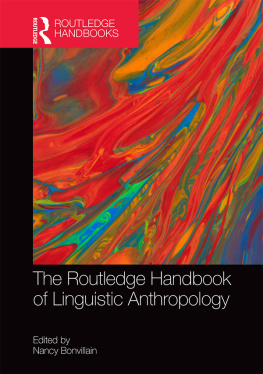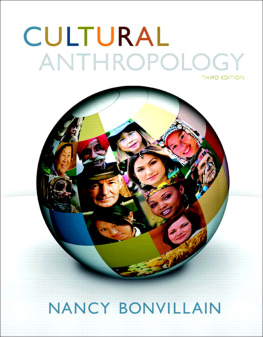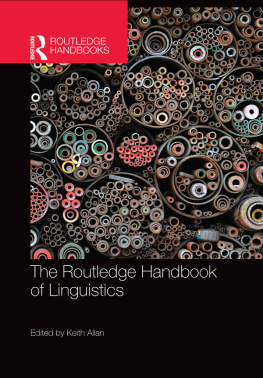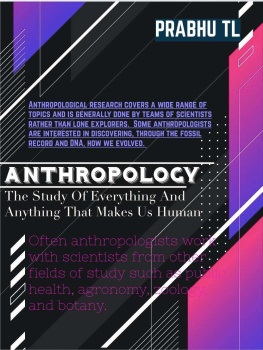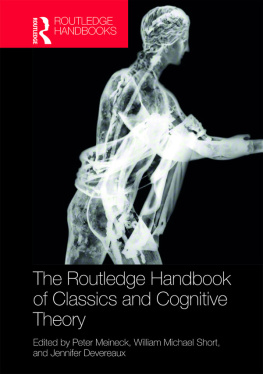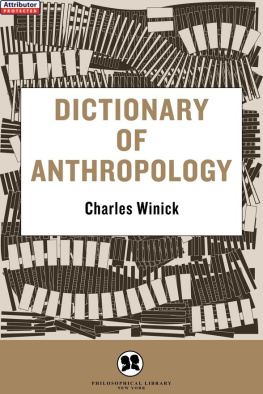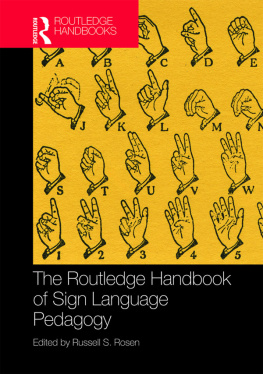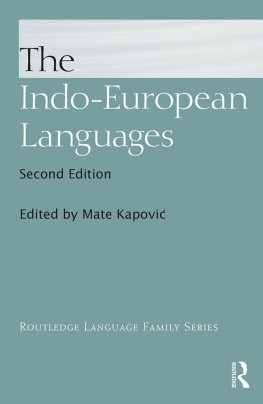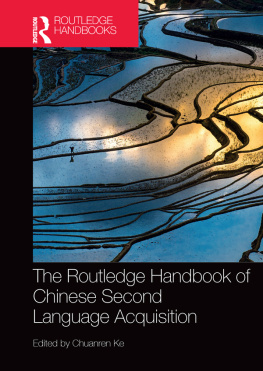
The Routledge Handbook of Linguistic Anthropology
The Routledge Handbook of Linguistic Anthropology is a broad survey of linguistic anthropology, featuring contributions from prominent scholars in the discipline. Each chapter presents a brief historical summary of research in the field and discusses topics and issues of current concern to people doing research in linguistic anthropology. The handbook is organized into four parts Language and Cultural Productions; Language Ideologies and Practices of Learning; Language and the Communication of Identities; and Language and Local/Global Power and covers current topics of interest at the intersection of the two subjects, while also contextualizing them within discussions of fieldwork practice. Featuring 30 contributions from leading scholars in the field, The Routledge Handbook of Linguistic Anthropology is an essential overview for students and researchers interested in understanding core concepts and key issues in linguistic anthropology.
Nancy Bonvillain teaches linguistics and anthropology at Bard College at Simons Rock, MA. Her fieldwork and research publications focus on linguistic analyses of Mohawk, a Northern Iroquoian language. She has also written several textbooks, including Cultural Anthropology; Language, Culture, and Communication; and Native Nations.

First published 2016
by Routledge
711 Third Avenue, New York, NY 10017
and by Routledge
2 Park Square, Milton Park, Abingdon, Oxon, OX14 4RN
Routledge is an imprint of the Taylor & Francis Group, an informa business
2016 Taylor & Francis
The right of Nancy Bonvillain to be identified as the author of the editorial material, and of the contributors for their individual chapters, has been asserted in accordance with sections 77 and 78 of the Copyright, Designs and Patents Act 1988.
All rights reserved. No part of this book may be reprinted or reproduced or utilised in any form or by any electronic, mechanical, or other means, now known or hereafter invented, including photocopying and recording, or in any information storage or retrieval system, without permission in writing from the publishers.
Trademark notice: Product or corporate names may be trademarks or registered trademarks, and are used only for identification and explanation without intent to infringe.
Library of Congress Cataloging-in-Publication Data
Bonvillain, Nancy, author.
The Routledge Handbook of Linguistic Anthropology / Nancy Bonvillain, Bard College at Simons Rock.
pages cm (Routledge Handbooks in Linguistics)
Includes bibliographical references and index.
Anthropological linguisticsHandbooks, manuals, etc. I. Title. II. Title: Handbook of Linguistic Anthropology.
P35.B616 2016
306.44089dc23
2015007379
ISBN: 978-0-415-83410-0 (hbk)
ISBN: 978-0-203-49274-1 (ebk)
Typeset in Bembo
by Swales & Willis Ltd, Exeter, Devon, UK
John Baugh holds the Margaret Bush Wilson Professorship in Arts at Washington University. In 2015 he was inducted as a fellow of the Linguistic Society of America, and he serves as Associate Editor of Language, devoted to matters related to public policy.
Julie Brittain is Associate Professor of Linguistics at Memorial University, Newfoundland, Canada. She works on syntactic issues in Algonquian languages, principally on East Cree (Quebec). Since 2004 she has been director of the Chisasibi (Cree) Child Language Acquisition Study.
Mary Jill Brody is Professor in the Department of Geography and Anthropology at Louisiana State University. She specializes in conversation and discourse in Tojol-abal Mayan, and is a court interpreter for monolingual Tojol-abal speakers in the United States.
Elaine W. Chun is Associate Professor of English and Linguistics at the University of South Carolina. Her research focuses on language, style, and identity as they relate to ideologies of language, race, racism, and gender in youth and media discourses.
John M. Conley is William Rand Kenan, Jr. Professor at the University of North Carolina School of Law. A lawyer and anthropologist, he has written numerous books and articles on the language of law, finance, and science, including Rules Versus Relationships and Just Words (with William M. OBarr).
Andrew Cowell is Professor of Linguistics at the University of Colorado, where he specializes in endangered language documentation and linguistic anthropology. He focuses on Algonquian languages, with a secondary interest in Polynesia.
Gerrit J. Dimmendaal is Professor of African Studies at the University of Cologne, Germany. His main interests are in the description and documentation of lesser-known African languages, in particular those belonging to the Nilo-Saharan phylum, as well as the relation between language and culture.
Inmaculada M. Garca-Snchez is Associate Professor of Anthropology at Temple University, PA. She is the author of Language and Muslim Immigrant Childhoods: The Politics of Belonging (2014), and of numerous articles and chapters on language and the immigrant experience of children and youth.
Eve Haque is Associate Professor of Applied Linguistics in the Department of Languages, Literatures and Linguistics at York University, Toronto, Canada. She is the author of Multiculturalism in a Bilingual Framework: Language, Race and Belonging in Canada (2012).
Susan F. Hirsch , a cultural anthropologist, is Professor in the School for Conflict Analysis and Resolution at George Mason University, Fairfax, VA. She publishes on laws relation to conflict, reflexive research, international justice, and language in the disputing process.
Margarita Huayhua is assistant professor of anthropology at the University of Massachusetts Dartmouth. She is a first-language speaker of Quechua with extensive field research in Peru, Bolivia, and Ecuador. Her research revolves around relations of power and social domination, language, gender, race and racism, and social movements, which she approaches through the analysis of every-day social interaction.
Marco Jacquemet is Professor of Communication and Culture at the University of San Francisco. His scholarship focuses on the communicative mutations produced by the circulation of migrants and media idioms in the Mediterranean area. He is writing a book based on this research, Transidioma: Language and Power in the Age of Globalization (Blackwell, forthcoming). His most significant English publications to date are Ethereal Shadows: Communication and Power in Contemporary Italy (co-authored with Franco Berardi; Autonomedia 2009) and Credibility in Court: Communicative Practices in the Camorras Criminal Trials (Cambridge University Press 2009, 2nd ed.).
Paul V. Kroskrity is Professor of Anthropology at the University of California, Los Angeles, where he has taught since earning his PhD in Anthropology from Indiana University in 1978. His books include Language, History, and Identity (1993); Regimes of Language (2000); and Telling Stories in the Face of Danger (2012).
William L. Leap is Professor of Anthropology at American University (Washington, D.C.). He is the author or editor of seven books and edited collections in language and sexuality studies. He is the founding co-editor of the Journal of Language and Sexuality and, since 1993, the coordinator of the Lavender Languages and Linguistics Conference ( www.american.edu/cas/anthropology/lavender-languages ).
Next page
